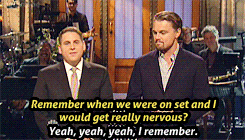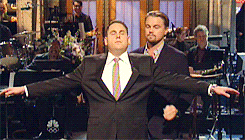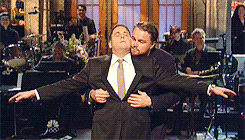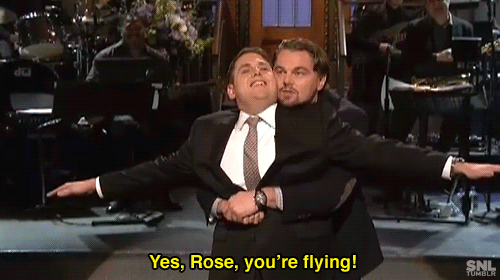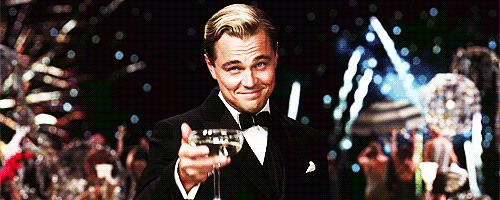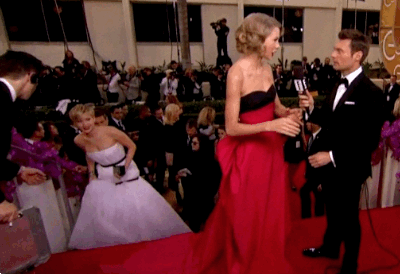“
Last night I dreamt I went to Manderlay again.” I had spent years in my school learning up this quote for quiz tryouts. Therefore, I was always somewhat acquainted with the story and like all good children, had wanted to watch the movie instead of reading the actual novel.
And so for my first ever Blind spot post, I decided to go with something a bit more familiar. Alfred Hitchcock’s first American movie,
Rebecca is both an unusual and an obvious entry in the master of suspense’s oeuvre.
A woman whose name we never find out is vacationing in Monte Carlo as a paid companion to a pompous old lady, Edith Von Hopper when she apparently saves the mysterious and aristocratic Maxim de Winter while he is overlooking a cliff. The two then keep meet again and the woman falls madly in love with Maxim and he too seems fond of her and they get married. They move to his ancestral house in England, the colossal Manderlay. The present Mrs. de Winter hopes to be happy there, but the place, the title the sinister housekeeper, Mrs. Danvers, and most of all, the overwhelming presence of Maxim’s deceased ex-wife Rebecca make it impossible for her.

Rebecca is kind of an odd film. It feels like two, maybe even three movies in one. The tryst between the future Mrs. de Winter and Maxim at the beginning, where they fool the farcical Von Hopper has a bit of a romantic comedy-esque essence to it. After the now-married Mrs. de Winter goes to Manderlay and meets Mrs. Danvers, it is a psychological suspense drama, and the last act where the mystery is solved is just that and very little else. Needless to say, where the film truly shines is the big chunk in the middle, with the strangest of battles between Mrs. de Winters, Mrs. Danvers and the aura of the titular Rebecca.

I cannot recall if I have ever seen a movie where a person we never see has as pervading a presence as Rebecca de Winter. Not only are half the things in the gigantic Manderlay embossed with her initials, but every person who had ever met her or even otherwise, like Mrs. de Winter, seems to be obsessed with her. I wonder how modern psychologists analyze a character like Rebecca. Is she the perfect embodiment of an ex? Is it as much as a relief to us when *SPOILERS* her true nature is revealed as it is to Mrs. de Winter because we cannot accept someone that perfect? *END SPOILERS* Maybe it was just me who thought such things but I too was completely entranced by Rebecca. Three scenes stood out the most in the movie for me and two of them had to do with her (though an argument can be made for the third one as well). The first was when Mrs. de Winter enters Rebecca’s room for the first time. As Mrs. Danvers had said, it really was the most beautiful room in the whole house. It reminded me of the famous quote, “Beauty is terror. Whatever we call beautiful, we quiver before it.” The juxtaposition of all the gorgeous things that Rebecca owned with Mrs. Danvers’ fanatical devotion and Mrs. de Winter’s horror was absolutely fantastic. And I read about how this film foreshadowed Hitchcock’s fetishization of clothes, but I don’t think I have ever seen anything symbolize a character so completely like that black negligee. The second scene was when Maxim reveals the truth about Rebecca to Mrs. de Winter and the way empty spaces are used to show what her actions and words had been is just remarkable.

The other character who I was fascinated by was Mrs. Danvers, played to terrifying perfection by Judith Anderson. Like the clothes, many believe that she was the first of the monstrous mother figures that populate Hitchcock’s movies. I thought a little differently of her. In my opinion, Mrs. Danvers was an obsessed lover. It would be interesting to contrast her with Mrs. de Winter because throughout most of the movie, I felt the latter was infatuated with her husband more than anything else. I think both Mrs. Danvers and Mrs. de Winter were in love with the idea of Rebecca and Maxim respectively than their real selves. Luckily for the latter, it ends in a happy communion, but for the former, there is only sadness and madness. Anderson plays her with stiff coldness but for that glimmer of crazy in her eyes, which really is quite frightening.

Finally, the third woman in the triangle- Mrs. de Winter. At first, I thought I had forgotten what her name was but then I realised that we never find it out. It makes you wonder if this film is about her at all? I partly feel like this because of the performance. This was my first Joan Fontaine movie and I am a bit confused about her. She is almost awkward throughout the movie. She looks like someone who would be scared of her own shadow which was something that distanced me from the movie a little bit, in spite of it making sense within the context of the story. I don’t know if I can blame her because apparently Hitchcock totally terrified and bullied her on set (can you imagine all the tweets and blogposts were this movie made today?!). Having said that, once she did come on her own, I really liked her confidence and natural gracefulness.
Among the rest of the cast, I thought everyone was pretty good. Laurence Olivier was hot, George Sanders was fun and the guy who played Ben was kind of scary looking. The men felt like secondary players to me and so there isn't any point going into greater detail.

David O. Selznick produced this film and had he not been busy with Gone with the Wind, we would have had a very different end result. His influence can still be felt in the film, and because of this, Hitchcock decided to shoot only scenes he wanted to show in his movies for his future projects. I suppose it was this battle of wits between the two that gives Rebecca its uneven tone. But I will still call it a Hitchcock movie, not only because of the motifs mentioned above, but most importantly because of the suspense the central part of the film has. Those two scenes that I talked about: only someone who knows how to heighten tension and induce dread in the minds of the audience can pull them off so brilliantly and very few ever did like Hitchcock. He was the one who altered Mrs. Danvers character to make the psychological web of the movie more complex.

The film is very stunning to look at. As I wrote above, I had read about this Manderlay from a very early age and it really looked as magnanimous as all that. Not only its huge exterior, but the lighting and space indoors are very striking. Some of the shots like the way rain gets reflected from the windows onto the rooms, Rebecca’s white room with Mrs. Danvers’ dark figure, and of course the closing scene (the last of the favourite scenes) are incredibly memorable. And while I was never struck by her beauty like I have been with other Hitchcock’s blondes, Fontaine’s profile is really lovely in some of the shots.
I am glad that I chose Rebecca for my blind spot, and not solely because of cinephile reasons. I found there to be a lot to contemplate about this film. I loved how female-based this film was. The power struggle between Mrs. Danvers, Mrs. de Winters and Rebecca is unique in many ways and I almost wish that the film would have only been about that. I also like how it questions what it is that people fall for. Like for Maxim, it seems he marries Mrs. de Winter only because of how un-Rebecca-like she is. Therefore as superfluous as I feel her infatuation with him is, I think he also is more concerned with outer appearances, in spite of his experience with Rebecca. Why else does he mourn for Mrs. de Winter’s “funny young lost look” towards the end? And obviously, why is it that we never find out Mrs. de Winter’s name? I think it’s because of both the themes I just wrote about- Rebecca’s name has power in it, which Mrs. de Winter largely lacks, and that she’s the anti-Rebecca in Maxim’s life. Again, I would love to know if there is a feminist take on this and what that might be.

Hence, as you can see, this film has been quite the brain fodder for me. In spite of flaws, there is a lot to love in it, from the look to Mrs. Danvers’ immaculate creepiness to Rebecca’s stifling aura to that perfect last shot. For those who haven’t watched it and are big Hitchcock fans, please do as soon as you can. And the people who have watched Rebecca before, what is your stand on these questions and theories of mine?
Note: This has been quite a meandering sort of review. It is also quite long, but I can’t promise if my future Blind spot entries will be the same. I have some tricky ones to look forward to (Lynch, Herzog) but it’s been nice to write something resembling a review after ages.





